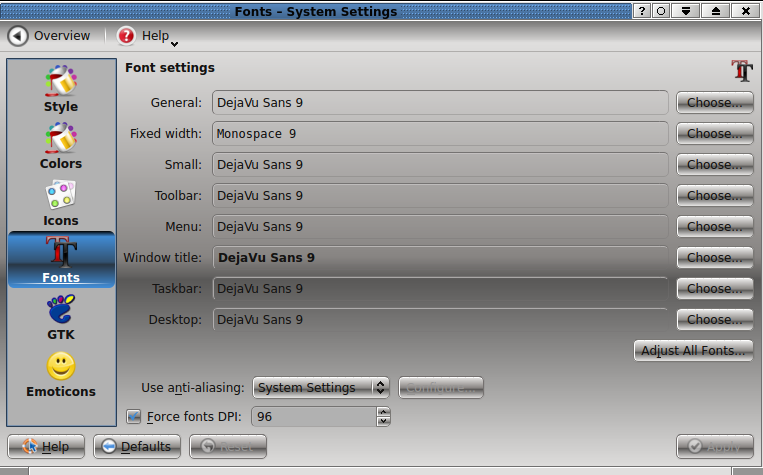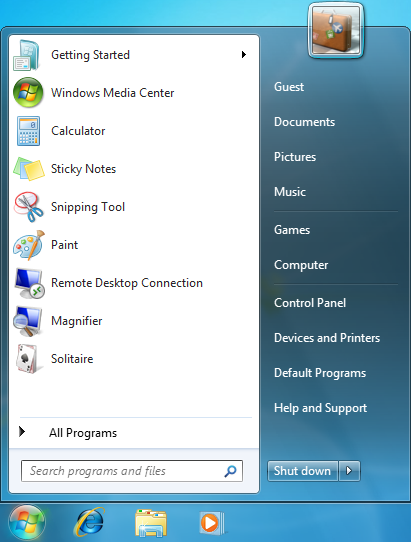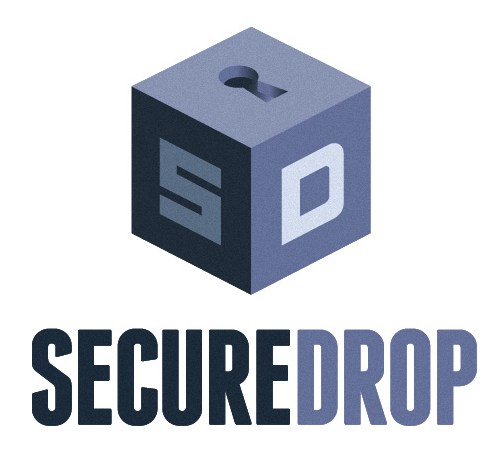I remember when I dove into Linux at full tilt boogie. It was 2004. Nickelback could still be found in the top 10 charts, The…
Posts tagged as “desktop”
Not so long ago all of us pretty much did our computing either on a desktop or a laptop. Those were pretty much our only choices, unless servers are included and they’re pretty much desktops without…well, a desktop.
These days we have all sorts of computing devices available to us, with more options being added daily, or so it seems. Although many media outlets evidently want us to believe that the traditional computer is on the way out, I don’t think that’s what’s happening. As The Motley Fool would say, were only seeing a market correction.
| [yop_poll id=”35″] |
With the advent of the Internet, many people began using computers not because they liked computers but because they wanted to use the Internet. We used to read about these people often, folks who only used computers to surf, check email and occasionally do a little word processing. This group of users was quite large and until a few years ago was probably the majority of home computer users. Nowadays, however, mobile offers this group an easy option, resulting in desktops and laptops being abandoned in favor of more user friendly mobile devices.
We thought it might be time to run a poll to see what the people who visit FOSS Force own and use in their homes. Because our readers are overwhelming FOSS supporters, we figure we might see a little different mix than what we’d see from a more mainstream site.
Christine Hall has been a journalist since 1971. In 2001, she began writing a weekly consumer computer column and started covering Linux and FOSS in 2002 after making the switch to GNU/Linux. Follow her on Twitter: @BrideOfLinux
 According to the results of our FOSS Force Desktop Poll, our readers prefer KDE over any other desktop environment by a wide margin. In fact, all other desktops were practically left at the gate.
According to the results of our FOSS Force Desktop Poll, our readers prefer KDE over any other desktop environment by a wide margin. In fact, all other desktops were practically left at the gate.
The poll accompanied Ken Starks’ article Those Krazy Kids & KDE, which talked about the preference his Reglue kids express for the KDE desktop. Because Starks’ article focused on KDE, GNOME 3 and Cinnamon, we focused our poll on those same three desktops. However, we included an “Other” category, under which another desktop could be entered. The poll asked the question, “Which desktop environment do you prefer?”
Christine Hall has been a journalist since 1971. In 2001, she began writing a weekly consumer computer column and started covering Linux and FOSS in 2002 after making the switch to GNU/Linux. Follow her on Twitter: @BrideOfLinux
These are the top ten most read articles on FOSS Force during the month of January: 1. Firefox OS: The Return of Microsoft’s Netscape Fears…
I grew up in a farming and ranching environment. It’s not the easiest life and it can beat you down if you let it. There’s always something broken, something that needs to be fixed, and if you let it get away from you it can become an overwhelming task trying to set it right.
When my Dad decided to retire from the business, we set about the task of getting things ready for prospective buyers or their agents. One of my jobs was to make sure that the tack shed was in order and all of the tack was wiped with linseed oil and evened up on the wall racks. I was already way behind in my chores and getting to the tack shed was low on my priorities.
 The very first prospect took the tour with me and my dad. We were showing him some of the out buildings of which the tack shed was one. When the buyer pulled out one of the trace harnesses, it had a broken coupler and the leather was cracked up and down the trace.
The very first prospect took the tour with me and my dad. We were showing him some of the out buildings of which the tack shed was one. When the buyer pulled out one of the trace harnesses, it had a broken coupler and the leather was cracked up and down the trace.
Ken Starks is the founder of the Helios Project and Reglue, which for 20 years provided refurbished older computers running Linux to disadvantaged school kids, as well as providing digital help for senior citizens, in the Austin, Texas area. He was a columnist for FOSS Force from 2013-2016, and remains part of our family. Follow him on Twitter: @Reglue
Two articles caught my attention this week and both of them came from The Verge. Both stories came out within 2 days of each other. In that they both dealt with Microsoft talking about or actually reversing previous decisions about Windows 8, I had to wonder if this was Microsoft damage control at work. It would seem so.
It’s not just me. A lot of my friends in IT think the Windows 8 release was a disaster. Microsoft was seen as telling the computing public, “You will accept our new Windows and you will like it.”
Uh, no they won’t.
Early sales figures were far more than disappointing for the folks at Redmond. So disappointing in fact, that the company made public at least some intentions of making amends to their customers.
Ken Starks is the founder of the Helios Project and Reglue, which for 20 years provided refurbished older computers running Linux to disadvantaged school kids, as well as providing digital help for senior citizens, in the Austin, Texas area. He was a columnist for FOSS Force from 2013-2016, and remains part of our family. Follow him on Twitter: @Reglue
If you want to see desktop Linux finally get some traction with the unwashed public, Mark Shuttleworth is more likely to be the guy who’ll make that happen than anyone who’s come along so far. He’s a capitalist and for better or worse this is a capitalist world. He knows that nothing big is going to get done on this market oriented planet without the art of the deal and some hustle. He also understands something about fit and finish, which was always lacking in desktop Linux until he came along.
For too long, we’ve been sitting around wringing our hands, sometimes proclaiming this to finally be the year of the Linux desktop without doing anything to make it happen and sometimes bemoaning the fact that the world still hasn’t discovered Linux as the secret to computing happiness. The thing is, the world never knows anything about secrets until they’re not secret anymore. We’ve been wanting Linux to just “catch on,” while we’ve been blaming the OEMs for not automatically pushing our home grown geek-centric distros with the same elan they put behind their bread and butter Windows.
Christine Hall has been a journalist since 1971. In 2001, she began writing a weekly consumer computer column and started covering Linux and FOSS in 2002 after making the switch to GNU/Linux. Follow her on Twitter: @BrideOfLinux
It’s beginning to look as if the naysayers are right about Mark Shuttleworth’s hopes to raise $32 million to produce about 40,000 Ubuntu Edge devices. It ain’t going to happen, unless he manages to pull another rabbit out of the hat. Right now, his Indiegogo campaign is stalled at a little over $7 million, where it’s been for several days.
I’m not going to go into the details that led to this, we’ve covered that already, but it’s beginning to look like the Ubuntu Edge happy train is running out of steam, especially since about half of the money raised came in the first day or two of a campaign that’s now in day nine.
Christine Hall has been a journalist since 1971. In 2001, she began writing a weekly consumer computer column and started covering Linux and FOSS in 2002 after making the switch to GNU/Linux. Follow her on Twitter: @BrideOfLinux







